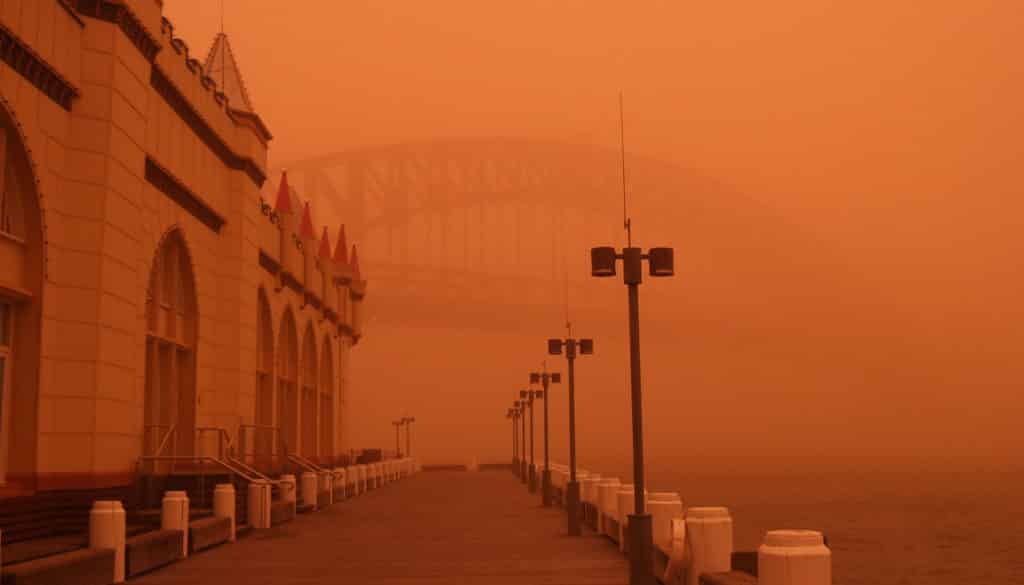
In late November, Sydney and much of the state of New South Wales was hit by a dust storm that blanketed Australia’s most populous state.
The dust that covered the country’s largest city is the by-product of a state-wide drought, with strong winds whipping up the dry soil and distributing it across a wide-area significant enough for air quality warnings to be made by the NSW state government.
Due to the scope of the weather event, the Office of Environment and Heritage issued air quality warnings for much of central NSW as the pollution reached hazardous levels. It showcases the dangers that dust-borne air pollution poses due to the microscopic nature of individual soil particles.
For GRT as a company, this episode again highlighted the dangers of airborne dust pollution with authorities reiterating the impact that this can have on people’s lungs as the particles and associated contaminants impact their bodies via their airways.
This event again illustrated how it is often the most vulnerable people in our communities who are impacted with the elderly, children and those people suffering existing respiratory issues such as asthma or chronic bronchitis who run the risk of being severely affected by environmental occurrences such as this.
Dr Richard Broome, the Office of Environment and Heritage Director of Environmental Health outlined this threat as part of the government response to the dust storm when he explained that due to the very small nature of the dust particles they can make their way deep into people’s lungs. He then outlined once inside people’s bodies they can cause systemic inflammation or make angina worse – threatening those people impacted with significant health issues.
What stands out to us here at GRT (and for myself with family living in the Central Queensland town of Emerald) is that communities on the fringe of both mining and agricultural industry are faced with these issues most days of the year. Drought further exacerbates this issue.
GRT supports the efforts being made within Australia at a local, state and national level such as the Local Government Air Quality toolkit produced by the NSW state government as a great example of the systematic efforts being made to address the issue of dust pollution as more recent comes to light about the danger it poses to the environment and community health. These aim to reduce heavy industry’s contribution to air pollution via new laws and regulations to ensure it is reducing the impact caused by major works – whether it be on a construction site or a large-scale coal mine.
Combining guidelines such as these, with the GRT range of solutions, ensures that we always seek to minimise the environmental impact of the projects we are working on. This strategy is focussed on eliminating the risk of dust being generated in the first place, rather than relying on PPE such as dust masks to manage exposure to our industry partners, as well as our own staff, as we focus on preventative tactics aiming to stop dust pollution in the first instance as our core focus.
As a company going forward, this is what drives us as we seek to further establish ourselves as the industry leaders in this area.
For more information please contact GRT
Are environmental regulations, health and safety concerns or potential profit loss a concern right now?
Contact Us Now